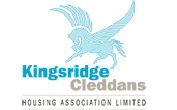TENANT AND RESIDENT SAFETY
Registered Social Landlords must meet legal and regulatory requirements on tenant and resident safety and must take prompt action to address any non-compliance.
Gas Safety
The Association has responsibilities under the Gas Safety Installation and use Regulations 1998) to:
-
Maintain all gas fittings and appliances which were installed by the Association in a safe condition.
-
Ensure that all maintenance and safety checks are carried out by a Gas Safe Registered installer.
-
Obtain an annual Landlord’s Safety Record (Form CP12) for each of our properties which has a gas supply.
-
Keep copies of these certificates for 2 years
-
Provide tenants with a copy of the landlord’s safety certificate
Inspections are carried out on a 10 month cycle in order to give us sufficient time to react to access difficulties and to ensure that we meet our legal requirement to have central heating boilers serviced within 12 months of the anniversary date.
Electrical Safety
Electrical installation deteriorates with age and the Association has a responsibility to ensure that our tenants are not put at risk by ensuring that the electrical installation remains in a safe and serviceable condition.
A periodic inspection checks the condition of an existing electrical installation against BS 7671, the UK standard for the safety of electrical installations. We will carry out periodic inspections every 5 years in order to:
-
Discover if electrical circuits or equipment are overloaded
-
Identify potential electrical shocks and fire hazards
-
Find and rectify any defective electrical work
-
Highlight any lack of earthing or bonding
Inspection report sheets will be provided in respect of each property using a form based on Appendix 6 of BS 7671.
Fire Safety
The Scottish Government has passed legislation to confirm that all existing homes in Scotland will be required to meet a new standard for fire safety by February 2021. The new standard requires that every home has:
-
1 smoke alarm installed in the main living area
-
1 smoke alarm installed in every circulation space in each storey, such as hallways and
landings
-
1 heat alarm installed in every kitchen
-
All smoke and heat alarms to be interlinked
-
CO alarms to be installed in all rooms where there is a fixed combustion appliance
Work to ensue compliance with this standard commenced in November 2019 and all of our homes will meet the standard by June 2020.
Management of Asbestos
The Association has statutory responsibilities under the Health & Safety at Work Act 1974 and Control of Asbestos Regulations 2012 to reduce asbestos related risks to as low as is reasonably practicable.
No asbestos containing materials were in use in our housing stock which was constructed from 2000 onwards and we have carried out asbestos surveys in a range of property types which were constructed prior to 2000. Surveys were carried out by a suitably qualified contractor registered with the Asbestos Removal Contractors Association.
NO ASBESTOS HAS BEEN DETECTED IN ANY OF THE PROPERTIES SURVEYED
We will continue to carry out surveys in any pre 2000 properties which become void as part of our re-let procedures.
Water systems: Legionella
Under general Health & Safety Law, the Association is required to take suitable precautions to protect or control the risk of exposure to Legionella.
All hot and cold water systems in residential properties are a potential source for legionella bacteria growth but Legionella Disease is easily preventable by taking simple precautions that will help keep you safe.
-
Flush through showers and taps for 10 minutes following a period of non-use and in particular if you have been on holiday.
-
Keep all shower heads and taps clean to prevent a build up of lime scale and mould.
-
Flush toilets with the lid down following a period on non-use.
You cannot get Legionnaires disease by drinking water. You can only catch it by inhaling small droplets of water suspended in the air which contain the bacteria.
In domestic properties the risk of legionnaires disease is rated as low risk and this can be kept low by following these simple guidelines.
Stock condition surveys
The Association employ consultants to carry out stock condition surveys on a sample survey of properties every 3 years. The purpose of the surveys is to:
-
Assess the current position of our housing stock to ensure compliance with legislative standards.
-
To assist in the identification of major repair requirements within an indicative timescale
-
To plan and budget for major repair expenditure
-
To update our existing30 year plans and update planned renewal dates to reflect the
actual condition of our properties
This enables us to maintain the future life and viability of our properties and ensure that we comply with legislative standards and good practice.
-
